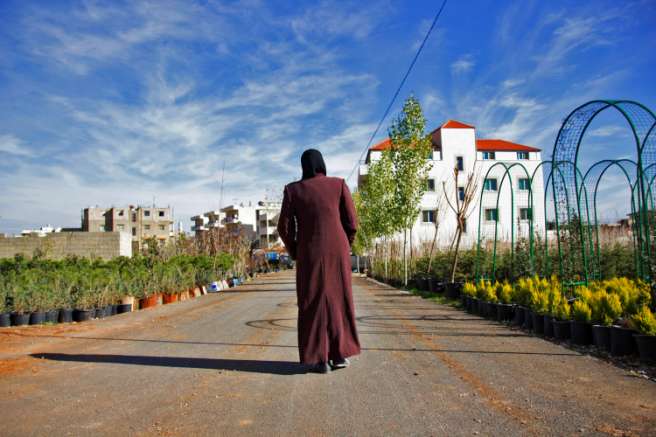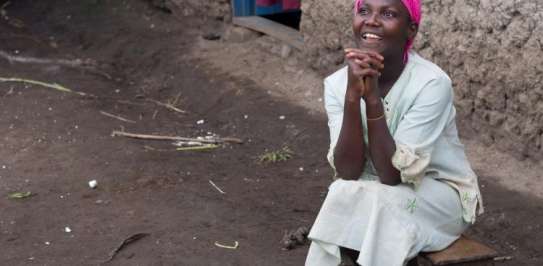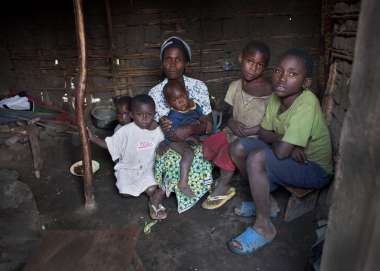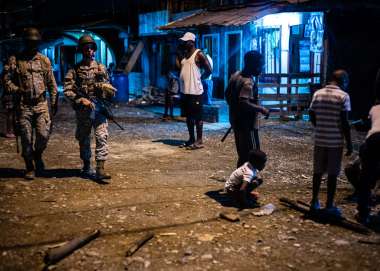On the International Day for the Elimination of Sexual Violence in Conflict, Christian Aid stands in solidarity with the survivors and calls on the international community, governments, and civil society to protect survivors and respond to their needs, take action to prevent this violence, and ensure those responsible are held to account.
From Violence to Peace
Preventing gender-based violence, responding to the needs of survivors, and challenging the conditions that enable this violence to occur, is a major part of Christian Aid’s work in moving From Violence to Peace. Gender-based violence is widespread across all countries and levels of society even in peace. However, during violent conflict, it increases and takes on new forms including new forms of sexual violence. The United Nations Security Council recognised this in 2008 when it adopted Resolution 1820 on Sexual Violence as a Weapon of War.
That resolution notes that rape and other sexual violence can constitute a war crime or crime against humanity, stresses the importance of ending impunity for such acts and calls for more training of troops on preventing and responding to sexual violence.
Christian Aid supports efforts to end sexual violence in conflict. We are a member of the Call to Action to End Gender-based Violence in Humanitarian Emergencies, including conflict-related emergencies. We are active in the international networks We Will Speak Out and Side by Side which unites faith-based actors in changing the conditions that lead to gender-based violence.
From 2015-2017 we chaired the Irish Consortium on Gender Based Violence, who are also a member of the GBV Area of Responsibility (the global level forum for coordination and collaboration on GBV prevention and response in humanitarian settings).
Our work
In some countries, our teams work directly with survivors of this violence. For example, in the Democratic Republic of Congo, we work with partners to provide counselling to survivors, provide them with some economic support to help reintegrate in their communities, and train police and military on gender-based violence issues and response. In Burundi, our team is testing the new Protocol on the Documentation and Investigation of Sexual Violence in Conflict to create a more accurate record of sexual violence crimes, which can be the basis of securing accountability for them. In Colombia in 2016, the government and the FARC rebel group signed a peace agreement ending 50 years of armed conflict, during which sexual violence became a major feature.
There are no truly accurate estimates, but a nine-year study during the conflict estimated that there were 54,410 victims of rape a year in Colombia. Christian Aid supported our partners during the peace negotiation when they were working inclusively with victim groups, specifically women, indigenous peoples, Afro-descendant communities, rural communities, and internally displaced people.
Alongside others, we achieved major contributions to the peace agreement, including ensuring that perpetrators of sexual violence in the conflict were excluded from amnesties.
The survivors
Christian Aid recognizes that sexual violence in conflict affects men and boys and LGBTQ people and equally, we deplore all such acts. As the majority of those victimised sexually are women and girls, it’s essential that the voices of women and girls play a major role in all efforts to address sexual violence in conflict.
Christian Aid fully supports the international Women, Peace, and Security agenda to include more women in peace-keeping operations, in peace negotiations and mediation processes. For example, in South Sudan, we are working with the ‘National Women Link’ of the South Sudan Council of Churches to make sure that women have a major part in their ‘Action Plan for Peace’.
The future
Image credits and information

Christian Aid will continue to work to ensure that survivors of sexual violence in conflict are at the heart of international efforts to combat these crimes and that our ultimate vision that every person has the chance to lead a full life can be recognised.
Claire Devlin, From Violence to Peace Programme Advisor


